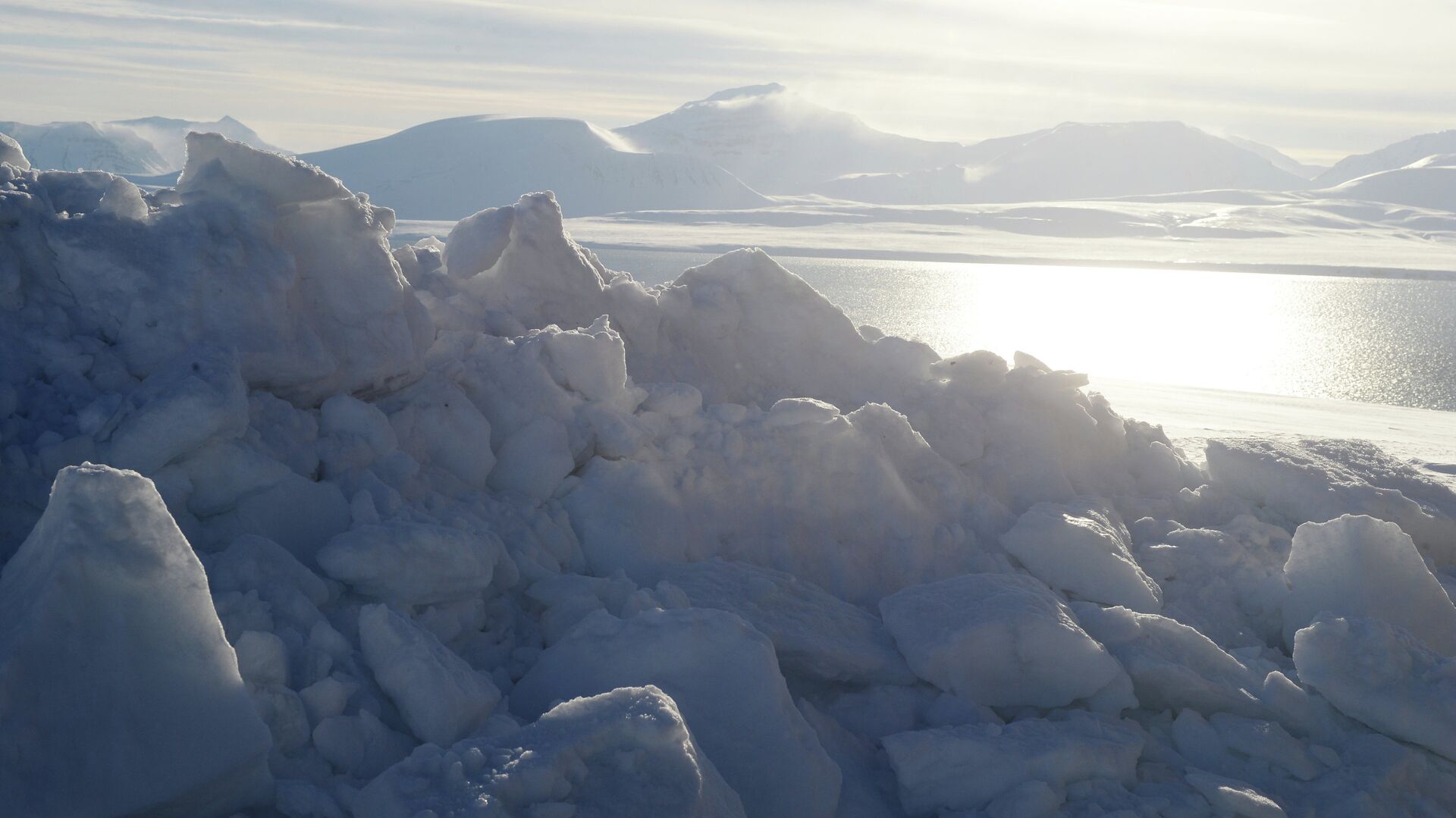https://sputnikglobe.com/20211002/thawing-arctic-permafrost-could-spread-nuclear-waste-new-viruses-study-warns-1089602116.html
Thawing Arctic Permafrost Could Spread Nuclear Waste, New Viruses, Study Warns
Thawing Arctic Permafrost Could Spread Nuclear Waste, New Viruses, Study Warns
Sputnik International
Rising temperatures in the Arctic continue to affect permafrost - land that is permanently frozen. Yet, the risks posed by global warming don't appear to be... 02.10.2021, Sputnik International
2021-10-02T11:40+0000
2021-10-02T11:40+0000
2021-10-02T11:40+0000
arctic
science & tech
climate
arctic
https://cdn1.img.sputnikglobe.com/img/102066/68/1020666821_0:160:3077:1890_1920x0_80_0_0_85606ddba9bd461af8fa65d1710c0b0e.jpg
Thawing permafrost in the Arctic could be a potential spreader of nuclear waste and unknown viruses and bacteria, new research published in the journal Nature Climate Change said.Moreover, the bacteria from the melting permafrost could be resistant to antibiotics, the scientists warn. There is also potential for new strains of antibiotic-resistant bacteria to be created as the permafrost thaws.According to the study, the Arctic has additionally been contaminated by different waste materials left after the mining of natural metal and nuclear weapons tests conducted in the area by the Soviet government in the 20th century.While listing the already known concerns such as climate change, sea levels rising, and greenhouse gas emissions, the scientist pointed out that there may be additional threats coming from the waste materials buried in the Arctic's permafrost.Edwards also called on world leaders to take "demonstrable action" not only regarding compliance with the Paris Agreement - an accord aimed at reducing the increase of the global temperature and cut greenhouse gas emissions to zero - but also to funding more research in the Arctic.
arctic
Sputnik International
feedback@sputniknews.com
+74956456601
MIA „Rosiya Segodnya“
2021
News
en_EN
Sputnik International
feedback@sputniknews.com
+74956456601
MIA „Rosiya Segodnya“
Sputnik International
feedback@sputniknews.com
+74956456601
MIA „Rosiya Segodnya“
arctic, science & tech, climate, arctic
arctic, science & tech, climate, arctic
Thawing Arctic Permafrost Could Spread Nuclear Waste, New Viruses, Study Warns
Rising temperatures in the Arctic continue to affect permafrost - land that is permanently frozen. Yet, the risks posed by global warming don't appear to be limited to climate change.
Thawing permafrost in the Arctic could be a potential spreader of nuclear waste and unknown viruses and bacteria, new research
published in the journal Nature Climate Change said.
"The Arctic cryosphere is collapsing, posing overlapping environmental risks. In particular, thawing permafrost threatens to release biological, chemical, and radioactive materials that have been sequestered for tens to hundreds of thousands of years", the abstract reads.
Moreover, the bacteria from the melting permafrost could be resistant to antibiotics, the scientists warn. There is also potential for new strains of antibiotic-resistant bacteria to be created as the permafrost thaws.
According to the study, the Arctic has additionally been contaminated by different waste materials left after the mining of natural metal and nuclear weapons tests conducted in the area by the Soviet government in the 20th century.
"This review identifies how other risks can arise from the warming Arctic", Arwyn Edwards from Wales' Aberystwyth University, who is one of the study's authors, told the BBC. "It has long been a deep-freezer for a range of harmful things, not just greenhouse gases".
While listing the already known concerns such as climate change, sea levels rising, and greenhouse gas emissions, the scientist pointed out that there may be additional threats coming from the waste materials buried in the Arctic's permafrost.
"We need to understand more about the fate of these harmful microbes and pollutants and nuclear materials to properly understand the threats they may pose", he said.
Edwards also called on world leaders to take "demonstrable action" not only regarding compliance with the Paris Agreement - an accord aimed at reducing the increase of the global temperature and cut greenhouse gas emissions to zero - but also to funding more research in the Arctic.



